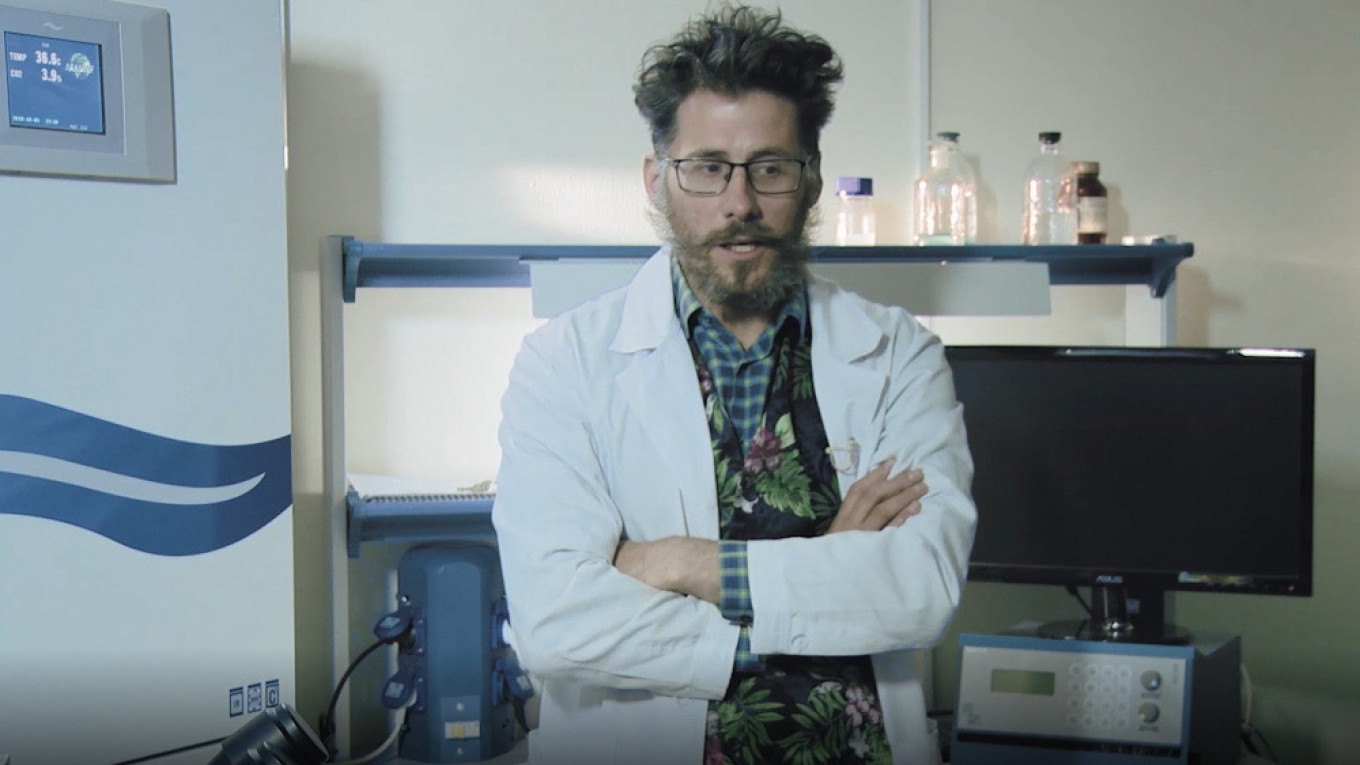A Russian scientist who was said to have worked on a coronavirus vaccine was found dead with a stab wound outside a St. Petersburg high-rise, authorities and local media said over the weekend.
The body of geneticist and molecular and cellular biologist Alexander Kagansky, 45, was found in the courtyard of a 16-story apartment block Saturday. The Fontanka.ru news website reported that he had been visiting an old schoolmate on their birthday the day of his death.
Russia’s Investigative Committee, which only identified Kagansky by his birth year of 1975, said it detained an unnamed 45-year-old suspect as part of a murder investigation.
The suspect denied that he had stabbed Kagansky and claimed that the scientist had wounded himself, Fontanka.ru reported, citing unnamed sources.
Fontanka.ru added that the 45-year-old suspect, who was due to be released Monday after 48 hours spent under arrest, is expected to take a lie detector test. The Nevskiye Novosti news website identified Kagansky’s old classmate as former Nezavisimaya Gazeta newspaper employee Igor Ivanov.
The outlet also reported that Kagansky, whose affiliations included the Maryland-based National Cancer Institute and the University of Edinburgh, was recently working on a Covid-19 vaccine in Scotland.
The Vladivostok-based Far Eastern Federal University, where Kagansky led the Genomic and Regenerative Medicine Center at its School of Biomedicine, said it mourns the death of an influential scientist whose works were regularly published in leading global scientific journals.
A Message from The Moscow Times:
Dear readers,
We are facing unprecedented challenges. Russia's Prosecutor General's Office has designated The Moscow Times as an "undesirable" organization, criminalizing our work and putting our staff at risk of prosecution. This follows our earlier unjust labeling as a "foreign agent."
These actions are direct attempts to silence independent journalism in Russia. The authorities claim our work "discredits the decisions of the Russian leadership." We see things differently: we strive to provide accurate, unbiased reporting on Russia.
We, the journalists of The Moscow Times, refuse to be silenced. But to continue our work, we need your help.
Your support, no matter how small, makes a world of difference. If you can, please support us monthly starting from just $2. It's quick to set up, and every contribution makes a significant impact.
By supporting The Moscow Times, you're defending open, independent journalism in the face of repression. Thank you for standing with us.
Remind me later.






